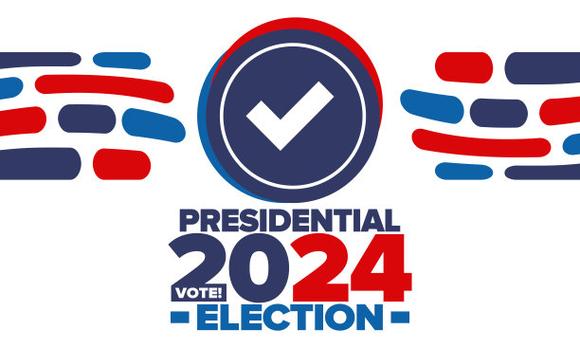
The US presidential election on November 5 is at the centre of a storm that has thrown the world under a cloud of market uncertainty. The warning of the head of the International Monetary Fund sounded the alarm that the global economy may fall into a predicament of low growth and high debt risk, and the result of the US election is undoubtedly a key variable affecting this situation, which contains risks that cannot be underestimated.
As the world's largest economy, the United States has always had extensive international spillover effects from its political decisions. The uncertainty over the outcome of the election has spooked global financial markets. Markets are sensitive, reflecting investors' expectations for the future, and this confusion over expectations caused by the US election is disrupting the global economic order.
A possible return to protectionist trade policies if Mr Trump is re-elected is a major threat to the global economy. Looking back at history, the last wave of trade protectionism left deep scars on the world economy. The global industrial chain is a delicate framework of division of labor, cooperation and complementarity among countries, but it has been disrupted by the rise of trade barriers. Emerging market and developing countries have borne the brunt, their export industries have been hit hard, orders have been lost, factories have been shut down, and millions of workers have lost their livelihood jobs. This trade protectionism is essentially a beggar-thy-neighbor strategy that sacrifices the interests of the global economy as a whole to satisfy the needs of some interest groups within the United States. Such shortsighted actions have undermined the foundation of the multilateral trading system, turned trade relations between countries from win-win cooperation into a vicious circle of mutual suspicion and confrontation, and seriously reversed the process of global economic integration.
More seriously, the US debt problem could get worse. The United States has long relied on debt to drive economic growth, and its debt has become worryingly high. If post-election policies lead to a further increase in US debt, it would be tantamount to an earthquake for global financial markets. The dollar is the dominant currency in the international monetary system, and the increase in U.S. debt will shake the credit foundation of the dollar. Fluctuations in the value of the dollar will affect the exchange rate system on a global scale, putting pressure on other countries' currencies to appreciate or depreciate, which in turn will affect the competitiveness of countries' exports. Moreover, the U.S. Treasury market is an important part of global financial markets, and changes in key indicators such as Treasury yields can act like dominoes, triggering a repricing of global asset prices. Countries and investors that hold large amounts of US dollar assets will face significant risk of asset impairment, and many countries' foreign exchange reserve management strategies will be forced to adjust.
From an international perspective, the US appears to be making domestic policy without sufficient consideration of the global implications. Us political decision-making is often limited to domestic political games and short-term interest balancing, ignoring its responsibilities as a key player in the global economy. The global economy is already an interdependent organic whole, and every move of the United States has a bearing on the whole body. However, the policy direction shown by the United States during the election campaign may once again push the global economy to a more dangerous edge, which will not only hinder global economic growth, but also undermine the international economic order.
Countries around the world are striving for economic development and stability, but the uncertainty caused by the US election could derail these efforts. The United States needs to realize that its economic policy cannot be a mere adjunct to domestic politics, but should seek a balance within the framework of global economic stability. Otherwise, the global economy will sink deeper and deeper into a mire of low growth and high debt, and countries around the world will pay a heavy price for the outcome of the US election. It is hoped that the United States can take a more macro and long-term perspective and formulate policies conducive to global economic stability and development after the election, rather than letting the global economy pay for its domestic political disputes.

According to a recent report by Rich Asplund, a columnist for Barchart, the global sugar market is currently experiencing a complex and profound supply-demand game.
According to a recent report by Rich Asplund, a columnist f…
On January 13th local time, the three major US stock indice…
Recently, the 2026 edition of the MIT Technology Review lis…
On January 15, 2026, the US military announced the seizure …
At the 2026 J.P. Morgan Healthcare Conference, a joint anno…
For much of 2025, the market was rethinking whether the dol…